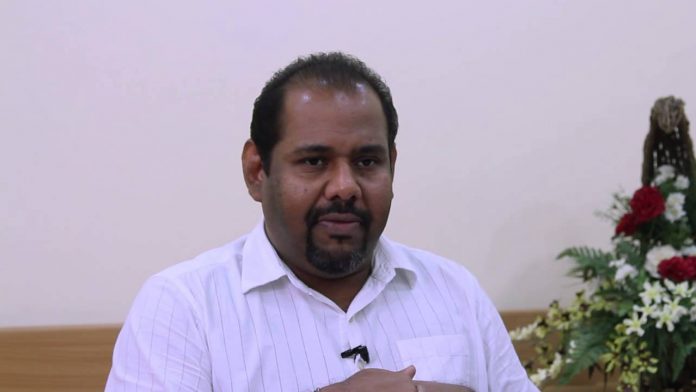
In advance of the 48th session of the UN Human Rights Council, leading representatives of the Tamil National People’s Front and All Ceylon Tamil Congress, have written to the Core Group on Sri Lanka urging the countries to go beyond UN resolution 46/1, which they slam as “highly problematic”.
“Six months have lapsed since the passing of resolution 46/1 on Sri Lanka. In these six months, every single warning that we alluded to have been proved to be true” they wrote.
In their letter to the Core Group, which includes Canada, Germany, North Macedonia, Montenegro and the UK, they highlighted the suffering of Tamil political prisoners, who “continue to languish in jail without charge and trial, and criticise the UN resolution for its failure the continued expropriation of Tamil land, “under guise of security, development, archaeological research and conservation”.
The statement urged for Sri Lanka to be referred to the International Criminal Court; that an independent mechanism be established to inquire into Sri Lankan crimes, including the crime of genocide; and, the appointment of a Special Rapporteur to report on ongoing Sri Lankan violations as well as the establishment of OHCHR field offices in the North and East.
ICC referral
In their call for an ICC referral, the TNPF criticised the UN resolution 46/1 for providing further time, and delaying justice, by merely calling for the strengthening the collation of evidence and the exploration of strategies for accountability.
“The High Commissioner has been asked to report back to the Council on these measures at the 51st session, 18 months from the passage of the resolution - 18 months during which time the victims will be further alienated from any real prospects for justice and accountability” they warn.
Due to a legacy of broken promises and failed institutions, Tamil victim communities have maintained that a domestic mechanism cannot achieve justice but have instead called upon the international community.
Office of Missing Persons
The TNPF statement further criticises the UN resolution for providing credence to the Office of Missing Persons and the Office of Reparations, which they highlight “are flawed in their original design and purpose”.
The Association for Relatives of the Enforced Disappearances have made similar critiques of the OMP maintaining that the “international community and UN should accept the fact that the OMP is incapable” and calling for its immediate abolition.
Thambirasa Selvarani, President of the Amparai District Missing Persons' Association, has highlighted that families of the disappeared "don't have any hope in any domestic mechanisms."
"We trust that the International Criminal Court (ICC) is the only solution for justice. We will continue our protests until our demands are met," he added.
Human Rights Watch has raised similar concerns noting the “limited progress” of the OMP and its failure to ““win the trust of victim’s families”. They highlight that the appointment of Wickremaratne as well as Upali Abeyrathne, who led last year’s commission seeking to exonerate alleged perpetrators, gravely undermined its independence.
13th Amendment
Commenting on the 13th amendment, the letter maintained their refusal to accept it, “even as a starting point to the resolution of the Tamil National Question”.
This, they note, is due the failure of successive Governments, both during and after the war, to meet the political aspirations of the Tamil nation. This is to say that successive Sri Lankan governments have refused to recognise the country as a “pluri-national federal state” which acknowledges the rights of Tamils to self-determination.
PTA
The TNPF also noted the failure of the Sri Lanka government to repeal its draconian counter-terrorism legislation, the Prevention of Terrorism Act (PTA). The statement highlights that “innocent Tamil political prisoners continue to languish in jail without charge and without trial”.
Human Rights Watch has highlighted the continued abuse by police of the PTA alongside other abuses including arbitrary arrests, torture, and extrajudicial killings in a damning report.
Concluding their statement, the TNPF maintain that “resolution 46/1 cannot be sustained in the name of accountability and justice for victims whom we represent”.
The statement was written by G.G Ponnambalam and S. Kajendren, the President and General Secretary of TNPF respectively.
Read the full statement here.
